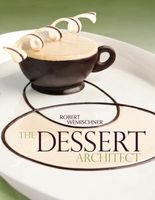Save 25% on ckbk Premium Membership with code FALLFLAVORS 🍁
Creating Textures
Published 2009
Texture is essential in any successful dessert. Carefully chosen, each element of a dessert lends personality to the whole and keeps the consumer satisfied from first bite to last. A creamy mousse is infinitely more interesting if it is set against a syrup-soaked sponge cake layer which itself has an engaging texture. An ice cream or sorbet may certainly be served as a freestanding dessert, but it, too, becomes much more satisfying when paired with a delicately crunchy, nut-encrusted tuile or other paper-thin cookie. Furthermore, a hot or warm chocolate or fruit sauce poured over a serving of double chocolate or vanilla ice cream adds yet another dimension, both in texture and in temperature. You don’t need to go much further than the corner soda fountain of yesteryear to validate the importance of texture in a dessert. That hot fudge sundae is a near-perfect example, delivering a lesson in how flavor, texture, temperature, and contrast all work together in a seamless whole. Freezing-cold ice cream paired with scalding hot fudge sauce (temperature and contrast), improved by a crunch of syrup-soaked walnuts (texture), and lightened with a cloud of airy, just slightly sweetened whipped cream (contrast again) show the successful dessert architect (or skilled soda jerk) and the principles of the Four Cornerstones at work on the most elemental level.
Become a Premium Member to access this page
Unlimited, ad-free access to hundreds of the world’s best cookbooks
Over 160,000 recipes with thousands more added every month
Recommended by leading chefs and food writers
Powerful search filters to match your tastes
Create collections and add reviews or private notes to any recipe
Swipe to browse each cookbook from cover-to-cover
Manage your subscription via the My Membership page
Part of
Advertisement
Advertisement


